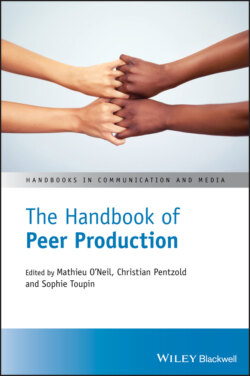Читать книгу The Handbook of Peer Production - Группа авторов - Страница 68
6 Instead of Conclusions: Towards a P2P Theory
ОглавлениеThe aim of P2P theory is, therefore, to give a theoretical underpinning to the transformative practices of peer production. It aims to understand how a new kind of society, based on the centrality of the commons and within a reformed market and state, is possible. Such a theory has to explain not only the dynamics of peer production, but also their fit with other inter‐subjective dynamics. For example, how peer production molds reciprocity modes, market modes, and hierarchy modes; on what ontological, epistemological, and axiological transformations this evolution is resting; and what a possible peer production ethos can be. A crucial element of such a P2P theory would be the development of tactics and strategy for such a transformative practice.
A transformative practice has to acknowledge and address systemic social unfairness and environmental degradation. Yet peer production does not solve many of these problems, especially those involving race and gender. Nor does it directly address the hidden environmental and social costs of digital technologies, which are energy‐intensive throughout their life‐cycle. Moreover, low‐wage laborers (often including children) work under inhumane circumstances so that ever more people in the advanced economies have access to cheap digital technologies. However, P2P theory and practices discuss and introduce new paradigmatic ways of value creation that have the potential to be more radically inclusive and sustainable.
